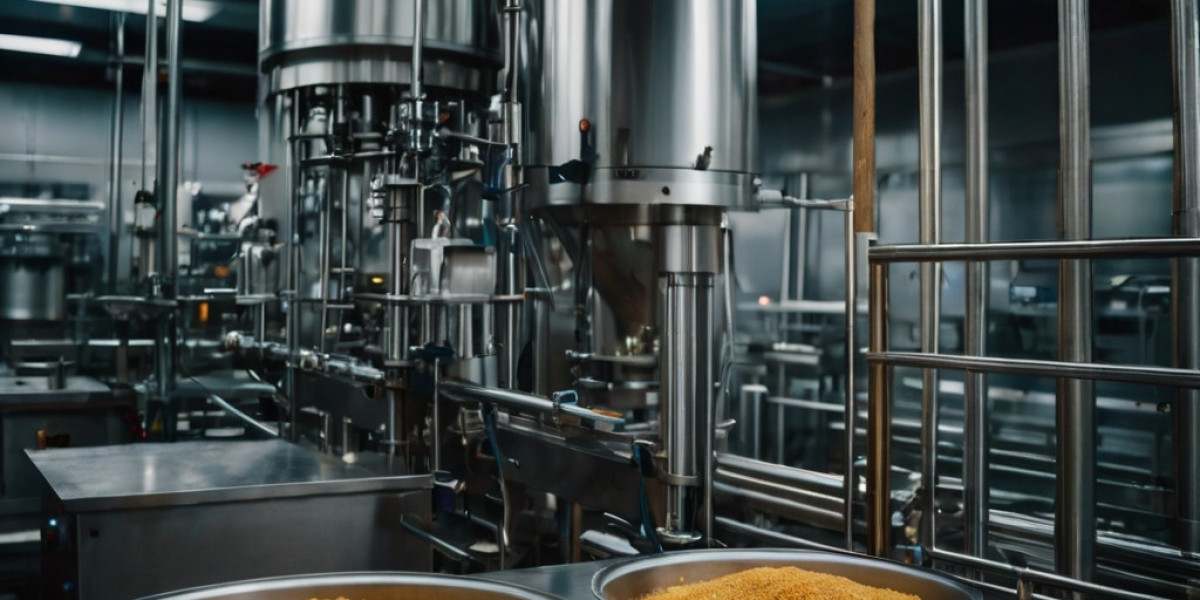Introduction
Saudi Arabia’s food processing industry is witnessing remarkable growth, supported by economic diversification efforts, increasing investments in food manufacturing, and evolving consumer preferences. The rising demand for processed foods, combined with advancements in food processing technology, is driving the need for efficient and automated equipment. As a result, food manufacturers are investing in state-of-the-art machinery to enhance productivity, reduce costs, and improve food quality.
Market Growth Factors
The Saudi Arabia food processing equipment market is expanding due to a combination of economic, technological, and regulatory factors. Vision 2030’s focus on food security and self-sufficiency is encouraging local food production, reducing dependence on food imports. Moreover, the shift towards automation and digitalization in food processing is improving efficiency and sustainability across the sector.
Major Trends Shaping the Market
Adoption of Advanced Food Processing Technologies
The integration of AI, machine learning, and IoT-enabled food processing equipment is revolutionizing the industry. Smart machinery is helping manufacturers optimize production, reduce waste, and maintain high-quality standards.
Rising Demand for Packaged and Frozen Foods
With urbanization and changing consumer lifestyles, there is an increasing demand for packaged, frozen, and convenience foods. This has led to greater investments in food preservation and processing technologies, including advanced freezing, drying, and vacuum-sealing equipment.
Growing Emphasis on Hygiene and Food Safety
Stringent food safety regulations are pushing manufacturers to invest in high-tech inspection and quality control equipment. Automated sorting systems, metal detectors, and X-ray scanning technologies are becoming essential components of modern food processing plants.
Expansion of Saudi Arabia’s Halal Food Industry
Saudi Arabia plays a pivotal role in the global halal food sector, and companies are investing in specialized equipment that adheres to halal certification standards. Advanced slaughtering, processing, and packaging technologies are helping businesses meet domestic and international halal food market demands.
Sustainability in Food Processing
As environmental concerns grow, the food industry is adopting sustainable processing solutions. Energy-efficient machinery, water-saving technologies, and waste reduction systems are being integrated into production processes to minimize environmental impact.
Competitive Landscape
The market is highly competitive, with key international and local players investing in R&D and expanding their presence in Saudi Arabia. Major companies operating in the sector include:
GEA Group
Bühler Group
Tetra Pak
Marel Food Processing Solutions
Middleby Corporation
These companies are introducing innovative food processing solutions to cater to the growing demand for high-quality food products.
Investment Opportunities
Expansion of Local Food Processing Equipment Manufacturing
Encouraging domestic production of food processing machinery can help reduce import dependency and lower costs for local food manufacturers.
Technological Advancements and Automation
Investment in AI-driven food processing equipment can enhance operational efficiency, improve food quality, and minimize wastage.
Cold Chain and Frozen Food Processing
With increasing demand for frozen and refrigerated foods, there is a need for better cold storage and temperature-controlled processing systems.
Halal-Certified Food Processing Solutions
As Saudi Arabia strengthens its position in the global halal food industry, there are significant opportunities for investment in halal-compliant food processing equipment.
Challenges and Market Constraints
High Capital Costs – Advanced processing machinery requires substantial investment, limiting access for smaller businesses.
Need for Skilled Workforce – Operating automated equipment requires trained professionals, creating a demand for specialized workforce training.
Stringent Food Regulations – Compliance with food safety and halal certification standards requires continuous investment in technology and monitoring systems.
Conclusion
The Saudi Arabia food processing equipment market is set to grow steadily, driven by advancements in automation, government initiatives, and rising consumer demand for processed foods. Companies that invest in energy-efficient, high-performance, and halal-certified equipment will benefit from the market’s expansion. As Saudi Arabia continues to strengthen its food production sector, both local and international players have significant opportunities to capitalize on the industry’s growth.









